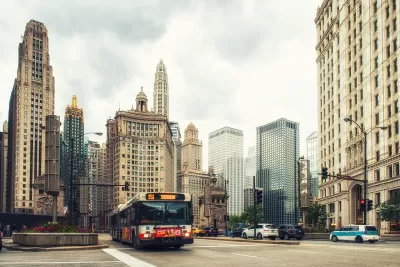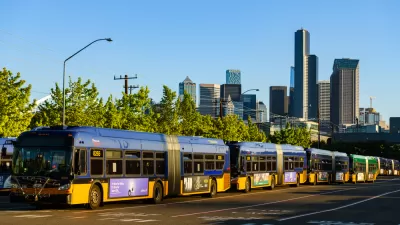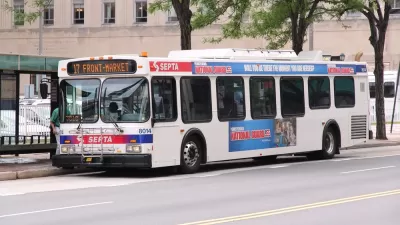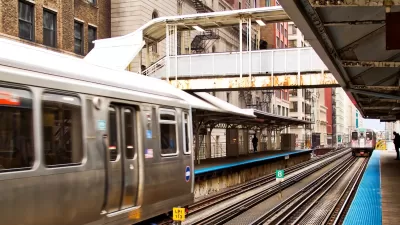An RTA report highlights a need for state funding to bridge an imminent $730 budget shortfall, calling for an approach that relies less heavily on fare revenue.

A report from the Chicago area’s Regional Transit Authority (RTA) highlights the system’s overreliance on fare revenue and recommends additional state funding for free and reduced-fare programs for low-income riders.
According to a Streetsblog Chicago article by John Greenfield, “The RTA, the CTA, Metra, and Pace have at least 15 specialized free and reduced fare programs, such as the RTA's Ride Free and Reduced Fare programs, which currently have 317,000 people enrolled and provided more than 82 million rides last year.” The report asserts that fully funding the Paratransit and reduced fare programs is necessary, but will raise the projected budget gap to roughly $730 million by 2026.
“The RTA report recommends addressing that challenge by creating an income-based reduced fare program called Regional Access. It also calls [for] full state funding of ADA Paratransit and Regional Access, which would help reduce the $730 million budget gap. Lastly, it proposes unlocking collaborative pricing policies across the region by investing in technology and funding reform.” The report also highlights the benefits of a regional fare that would let riders transition seamlessly across systems.
FULL STORY: New RTA Report recommends income-based fare programs

Study: Maui’s Plan to Convert Vacation Rentals to Long-Term Housing Could Cause Nearly $1 Billion Economic Loss
The plan would reduce visitor accommodation by 25,% resulting in 1,900 jobs lost.

North Texas Transit Leaders Tout Benefits of TOD for Growing Region
At a summit focused on transit-oriented development, policymakers discussed how North Texas’ expanded light rail system can serve as a tool for economic growth.

Why Should We Subsidize Public Transportation?
Many public transit agencies face financial stress due to rising costs, declining fare revenue, and declining subsidies. Transit advocates must provide a strong business case for increasing public transit funding.

How to Make US Trains Faster
Changes to boarding platforms and a switch to electric trains could improve U.S. passenger rail service without the added cost of high-speed rail.

Columbia’s Revitalized ‘Loop’ Is a Hub for Local Entrepreneurs
A focus on small businesses is helping a commercial corridor in Columbia, Missouri thrive.

Invasive Insect Threatens Minnesota’s Ash Forests
The Emerald Ash Borer is a rapidly spreading invasive pest threatening Minnesota’s ash trees, and homeowners are encouraged to plant diverse replacement species, avoid moving ash firewood, and monitor for signs of infestation.
Urban Design for Planners 1: Software Tools
This six-course series explores essential urban design concepts using open source software and equips planners with the tools they need to participate fully in the urban design process.
Planning for Universal Design
Learn the tools for implementing Universal Design in planning regulations.
Ascent Environmental
Borough of Carlisle
Institute for Housing and Urban Development Studies (IHS)
City of Grandview
Harvard GSD Executive Education
Toledo-Lucas County Plan Commissions
Salt Lake City
NYU Wagner Graduate School of Public Service





























